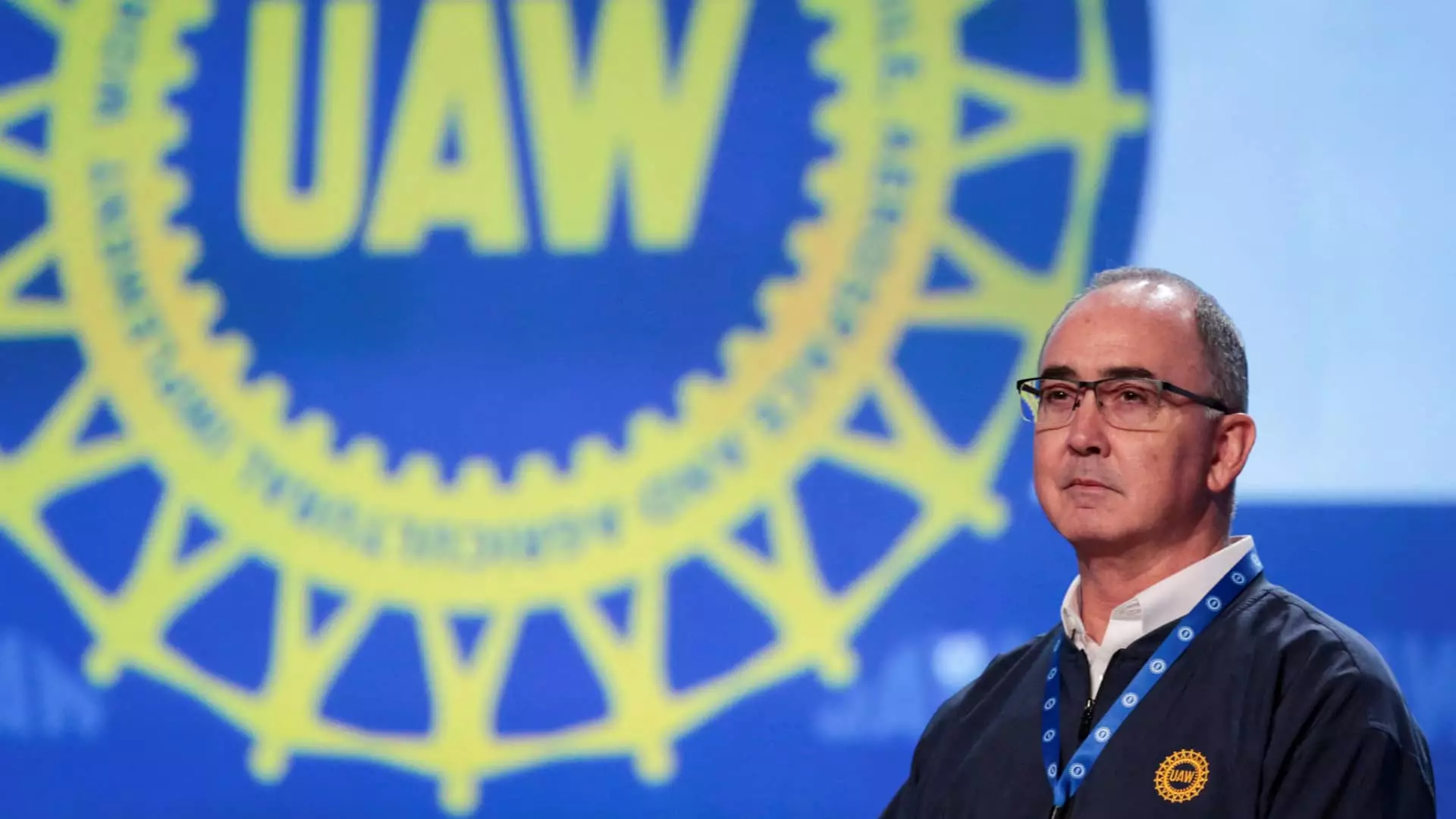United Auto Workers President Shawn Fain recently released a video where he criticized Stellantis CEO Carlos Tavares, accusing him of price gouging consumers and failing to uphold parts of the union’s labor contract with the automaker. Fain’s comments in the video raised concerns about sales being down, profits decreasing, and CEO pay increasing significantly. He pointed fingers at Tavares for these issues, indicating that the problem lies with the executive rather than external factors.
Fain’s accusations, particularly around job cuts and Tavares’ pay, are not new. However, Fain took them a step further in his recent video, alleging that Stellantis is engaging in price gouging practices to boost profits. He also claimed that the company is not honoring parts of the worker contract, such as halting plans to reopen an assembly plant in Illinois. Despite these serious claims, spokespeople for the union and the automaker have yet to respond to the accusations or the video.
Tavares, on the other hand, has been critical of the UAW-Stellantis workforce, highlighting quality issues at a truck plant in metro Detroit that manufactures the Ram 1500 pickup truck. The CEO has also announced thousands of layoffs at U.S. plants due to declining sales and changes in products. He has been on a cost-cutting mission since the merger between Fiat Chrysler and France’s PSA Groupe, aiming to increase profits and revenue by 2030.
As part of his “Dare Forward 2030” plan, Tavares has implemented various cost-saving measures, including reshaping the company’s supply chain, operations, and reducing headcount for both salaried and hourly workers. Stellantis has already reduced headcount by 15.5% or approximately 47,500 employees between December 2019 and the end of 2023, with a 14.5% reduction in North America alone. However, these reductions do not account for further layoffs expected this year.
Executives within the company have described the cost-cutting measures as grueling and excessive, indicating the tough decisions made by management during this transition period. Despite criticisms from Fain and others, Tavares defends these efforts, stating that the cost-cutting measures are necessary to address the company’s current challenges.
The ongoing clash between Fain and Tavares highlights the complexities within the automotive industry, particularly amid economic uncertainties and shifting market dynamics. While Fain raises valid concerns about Stellantis’ practices, Tavares maintains that the cost-cutting initiatives are essential for the company’s long-term success and sustainability. Only time will tell how these conflicting viewpoints will impact the future of Stellantis and its workforce.

